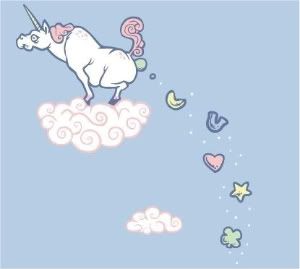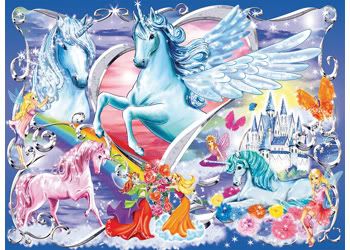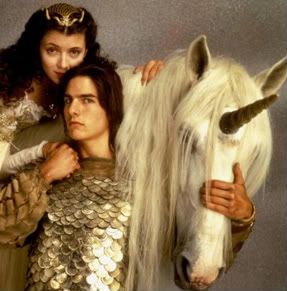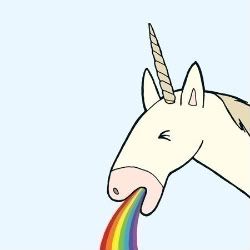 Today Ambelin Kwaymullina, who is an Aboriginal writer and illustrator from the Palyku people, has generously allowed me to publish this essay.
Today Ambelin Kwaymullina, who is an Aboriginal writer and illustrator from the Palyku people, has generously allowed me to publish this essay.
I’ve been an admirer of Ambelin Kwaymullina’s work for some time. Not just her wonderful dystopian trilogy about a far future Australia, The Tribe series, but her thoughtful essays. She has become one of the most important Australian voices speaking out about diversity and Own Voices.
This essay is particularly important now that so much of the world is shifting to right-wing, racist governance. The work of people like Kwaymullina show us ways to fight back and make our voices heard.
Thank you, Ambelin Kwaymullina.
Thoughts on Being an Ally of Indigenous Writers (and other marginalised writers) in the Kids Lit Space
I’m increasingly being asked about how to be an ally of Indigenous writers—so here’s a few thoughts on some of what it takes.
1. Be able to articulate and interrogate your position—especially your privilege.
We all have a location in this world. Indigenous peoples are accustomed to identifying our position—our homeland, our people—and recognising the boundaries that position places upon us. For example, it is a rule common to all Aboriginal nations of Australia that no one can speak for someone else’s homeland (Country), and there are many other boundaries on who can tell what stories in Indigenous cultures.
The privileging of Whiteness means that ‘White’ has not historically been viewed as one location amongst many but rather as a kind of default normal; the universal lens through which which all other experiences of the world are to be interpreted and judged. Male privilege, and heteronormativity and ableism, work in the same way. And being an ally of others requires being able to articulate and interrogate the position that you hold and the privilege that it gives you.
All non-Indigenous peoples are to some degree privileged in relation to Indigenous peoples, because all who came here post-colonisation benefited from the dispossession of those who were here before. This means that non-Indigenous peoples writing about Indigenous peoples are doing so from the fraught position of holding a privilege that emerged from—and is in some ways sustained by—the marginalisation of the peoples they write about.
For White writers, this colonial privilege is reinforced by White privilege, and there are numerous useful online resources surrounding White privilege, including the work of Dr Robin DiAngelo. I suggest anyone seeking to be an ally familiarises themselves with her work on White fragility and the White rules of engagement. I also suggest reflecting on these two posts from Justine Larbalestier. And for the ongoing interrogation of Whiteness and children’s literature, tune in to the US blog Reading While White—good starting points are these posts from Elisa Gall, Nina Lindsay, Angie Manfredi, Ernie Cox, Megan Schliesman, Allie Jane Bruce, Sam Bloom and K T Horning.
While these resources relate to White privilege, they can also have a broader relevance. For example, as an Aboriginal writer, I’ve found it useful to reflect on the White rules of engagement both to understand the reactions I encounter from some White colleagues and also to prompt consideration of how I should engage with marginalised groups to which I do not belong. I’m not suggesting that different forms of marginalisation equate; merely that its been helpful to me to consider the invasive patterns of behaviour DiAngelo identifies so as to ensure that I do not replicate similar patterns in different contexts.
Interrogating position and privilege also leads to the question of what stories can (or should) be told, and by whom? And in this respect, it is not a numbers game. I’ve had the view put to me before that there aren’t a sufficient number of Indigenous people to write ‘enough’ books and therefore White writers must step in to fill the story-space.
My response to this is that a lack of diversity in kids lit is not a ‘diversity problem’. It is a privilege problem, in that it is caused by structures, behaviours and attitudes that consistently privilege one set of voices over another. This means that it cannot be solved by yet more privileged voices writing about the experiences of the marginalised.
If writers of privilege do not proceed with considerable caution, they will become not liberators, but an occupying force whose presence in the field prevents Indigenous stories from being told and heard. This is why I have said that one boundary I believe non-Indigenous writers should observe is not to tell Indigenous stories from first person or deep third. I accept the same boundary in relation to writing of experiences of marginalisation not my own.
Beyond this, its extraordinarily difficult to write of other peoples, even when observing respectful boundaries. It requires time, research, reflection, and advice—and this is not solely an author responsibility. It’s publishers as well. I know of instances when White authors have been horrified to find that they have unwittingly included harmful stereotypes about Indigenous peoples in a novel. These things can be more difficult to spot than you might think. I’ve said before that words written about marginalised peoples have a weight and a cost, but if you don’t come from that group, then the weight is not one that you carry and the cost is not one that you pay. And that means it can sometimes be hard to see when you are contributing to harm. Authors rely on editors to guide us and challenge us and question us—but how many editors truly have the expertise to either spot a representation issue, or to realise when they need to seek specialist advice from someone who does have the expertise? I’m not saying authors shouldn’t take responsibility, but publishers have a responsibility too. And there are some amazing people in Australian publishing who are proactive in informing themselves about the issues and who continually strive to improve their practice. But we need a lot more people to do this if the industry is going to achieve sustained change.
2. Ask yourself why
Why do you wish to support others? It can be easy (for anyone) to fall prey to the perils of saviourism; the seductive allure of being the person who ‘helps’. But in many ways the goal of any good ally (or advocate) should be not to make yourself more useful, but less—the idea is to be so good at ally-ship/advocacy that you become redundant. I look forward to the day when I no longer need to speak out on diversity in children’s literature because the industry has reached the point when all voices are heard equally and all voices have an equal opportunity to be heard.
I believe supporting others requires a rights-based, strength-based approach. Rights-based, in that I recognise that the denial of anyone’s rights, and the diminishment of anyone’s humanity, diminishes and denies my own. No one should therefore be grateful to me for any support I offer; their fate and mine are intertwined. Strengths-based, in that I am not ‘fixing’ the deficit of others but challenging the barriers—including the lived impact of those barriers—that prevent others from being able to actualise their strength and realise their potential. And let me be clear here: I am not suggesting I have a ‘right’ to tell someone else’s stories. I am saying that the exclusion of marginalised voices harms me whether or not it is the exclusion of a group to which I belong, and the way to address that harm is to challenge the barriers that prevent the strength of those voices from being heard.
3. Identify (and if necessary change) your personal narrative
Most of us would like to think of ourselves as good people. But when it comes to dealing ethically and equitably with others, having a view of ourselves as a ‘good person’ can be counter-productive. For example, as a straight, cis gendered woman who wishes to support LGBTI writers, having a personal narrative of ‘I am a good person and therefore I cannot be homophobic’ is both inaccurate and unhelpful.
We are all capable of absorbing harmful attitudes and enacting harmful behaviours; ‘good’ means being aware enough to identify the attitudes/behaviours either on our own or through having them pointed out by others. And if someone does point out we’ve caused harm, the appropriate reaction is not to be angry with that other person but to make a genuine apology and to be grateful for the insight being offered into someone else’s world.
4. Inform yourself
Anyone truly interested in supporting others should take the time to find out something about about the peoples they wish to support—and with Indigenous peoples, everyone can start with some of the quality resources available free and online. These include, in relation to Indigenous cultures and histories, the exhibitions and other information available at the AIATSIS website; the resources on Indigenous civil rights and land rights at the National Museum of Australia; the Bringing Them Home report and associated resources; and the Share Our Pride module on the Reconciliation Australia website.
People can also inform themselves about common stereotypes by reading publications such as the Australian Human Rights Commission’s Face the Facts and Reconciliation Australia’s Beyond the Myths. They can familiarise themselves with the many ethical protocols that apply to dealing with Indigenous peoples including the Australia Council for the Arts protocols and the AIATSIS Ethical Research and Ethical Publishing protocols, as well as with the overarching rights-based framework of the Declaration on the Rights of Indigenous Peoples.
People can learn appropriate terminology by accessing one of the many Aboriginal and Torres Strait Islander terminology guides produced by Australian universities and government departments (google Indigenous terminology guide, and you’ll find a heap).
All this is only a starting point beyond this, and especially for anyone with a love of books, I think one of the best ways to engage with the diverse cultures, histories and experiences of Indigenous Australia is to read our stories. And for kids lit, the publisher with the biggest list of Australian Indigenous stories is Indigenous publisher Magabala Books.
5. Use your power
If I had a dollar for every time someone in literature has told me they’d like to do more for diverse writers if only they had the power, I would even now be using my many dollars to establish an Own Voices prize in Australian kids lit (‘Own Voices’ is shorthand for books written by marginalised writers about their own marginalisation). I understand that resources are few—but the level of our individual power (and therefore our individual responsibility) can only ever be measured by reference to those who have less choices than we do, not those who have more.
Judged by that standard, the vast majority of people associated with Australian literature are immensely powerful. Besides which, in the age of the internet, everyone is able to realise their individual power in ways that weren’t possible before the arrival of the worldwide web. Anyone can tweet, share, review and otherwise promote books written by Indigenous writers. Anyone can draw on online resources—such as those provided by the Racism. It Stops with Me campaign—to train themselves to be aware of discrimination at individual and systemic levels, and to say something if they see something (provided it is safe to do so).
Everyone can read and engage with the nuanced and multi-faceted conversation coming out of the US on diversity in kids lit (and anyone with an interest in Indigenous issues in this regard should be following American Indians in Children’s Literature). Everyone can raise up their voice, whether through the net or otherwise, to demand that marginalised voices be heard.
And in so doing, we can all be part of something larger and greater than ourselves.














